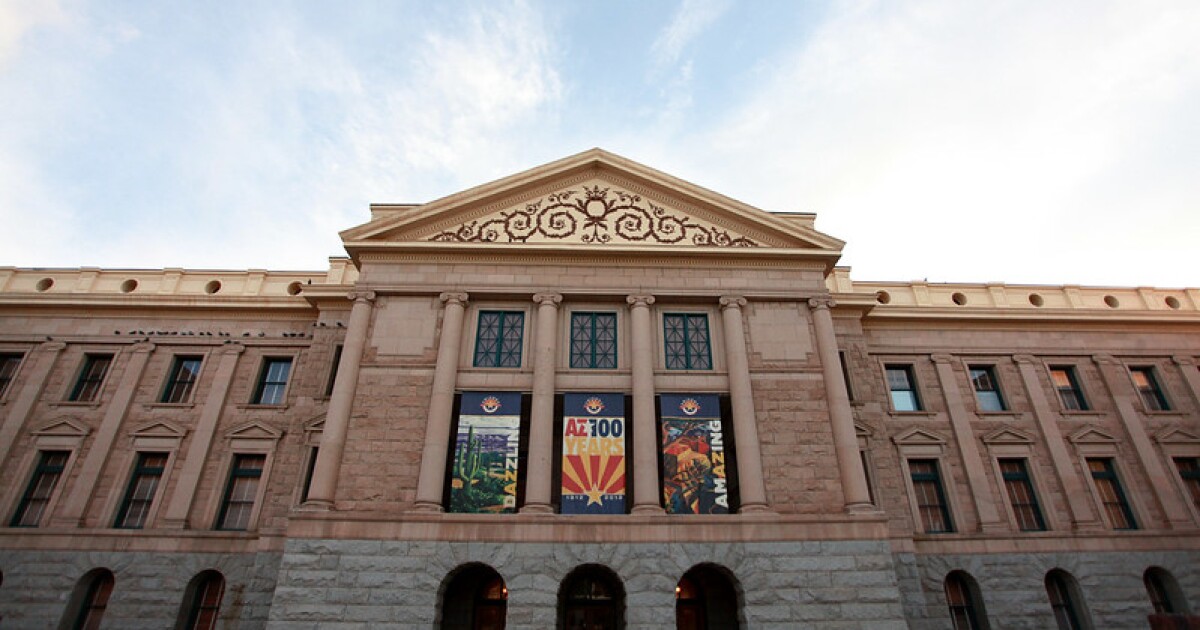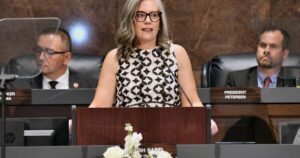Arizona lawmakers are nearing the completion of a significant $17.6 billion budget proposal. The Senate, led by President Warren Petersen, has reached a compromise by incorporating some priorities from House Republicans, maintaining the budget’s financial integrity.
Petersen, representing Gilbert, stated that the Senate had previously allocated $90 million for House requests, ensuring the state’s financial plan remains balanced. However, certain legislative changes proposed by the House, such as reducing Attorney General Kris Mayes’ prosecutorial powers in political cases and budgetary impacts on state university tuition and Family Court judge salaries, will not be included in the final package.
The current budget proposal, which awaits a Senate vote, aligns only with policy changes approved by the governor. Notably, the House Republicans’ plan, which was boycotted by Democrats, suggested spending $300 million less than the Senate’s version. Meanwhile, Rep. Justin Olson from Mesa is advocating for further cuts by $108 million.
House Appropriations Committee Chairman, Rep. David Livingston, expressed confidence that the more comprehensive Senate budget will garner enough votes, provided it includes items important to House members.
The Arizona Department of Education is approving retroactive alternative school status for Primavera Online School. The decision could help the school’s case as it works to keep its charter.
Key Issues Beyond the Budget
In addition to the budget, lawmakers must address several other significant issues. One involves deciding whether state and local sales tax revenues should be used to fund improvements at Chase Field, home of the Arizona Diamondbacks. The stadium, owned by Maricopa County, requires urgent repairs, prompting discussions on financial responsibility.
Another pending issue is whether to propose an extension to Proposition 123, which allocates over $300 million annually from a state land trust to K-12 schools. This provision expires this year, and its renewal has sparked debates about incorporating parental rights to education vouchers into the Arizona Constitution.
Furthermore, legislation allowing developers to purchase water rights from farmers to ensure a sustainable supply for new housing developments is also under consideration.
Urgency of Budget Approval
The budget’s approval is critical, as failure to finalize it by the month’s end could halt non-emergency state services. Senate Appropriations Committee Chairman Sen. John Kavanagh noted that the GOP leadership opted to collaborate with the Democratic governor, given their lack of a two-thirds majority to override vetoes.
Kavanagh explained that budget negotiations started late, fostering a more cooperative approach. Despite House Republicans initially pursuing a more conservative budget, Rep. Livingston believes the current proposal could gain significant support, thanks to its alignment with key priorities such as public safety, education, and transportation.
However, opposition remains, not only from Republicans. Sen. Sally Ann Gonzales criticized the allocation of $24.7 million to the Gang and Immigration Intelligence Team Enforcement Mission, citing concerns about racial profiling and community harm. Gonzales urged fellow Democrats to consider their constituents’ interests when voting on the budget.
-
An Arizona congresswoman is demanding answers from the Trump administration about conditions at the immigration detention center in Eloy.
-
The Maricopa County Board of Supervisors unanimously voted to countersue Recorder Justin Heap, days after he first took the board to court over control of the county’s elections.
-
Changes appear to be coming to the so-called “Big, Beautiful Bill” now that it’s in the Senate. Some of those adjustments are likely to affect taxes, Medicaid cuts and the debt limit.
-
Freshman U.S. Rep. Yassamin Ansari, D-Phoenix, is the daughter of Iranian immigrants who fled the county after the 1979 revolution. As the first Iranian-American Democrat in Congress, Ansari agrees there should be regime change, but does not condone the U.S. getting involved.
“`
















